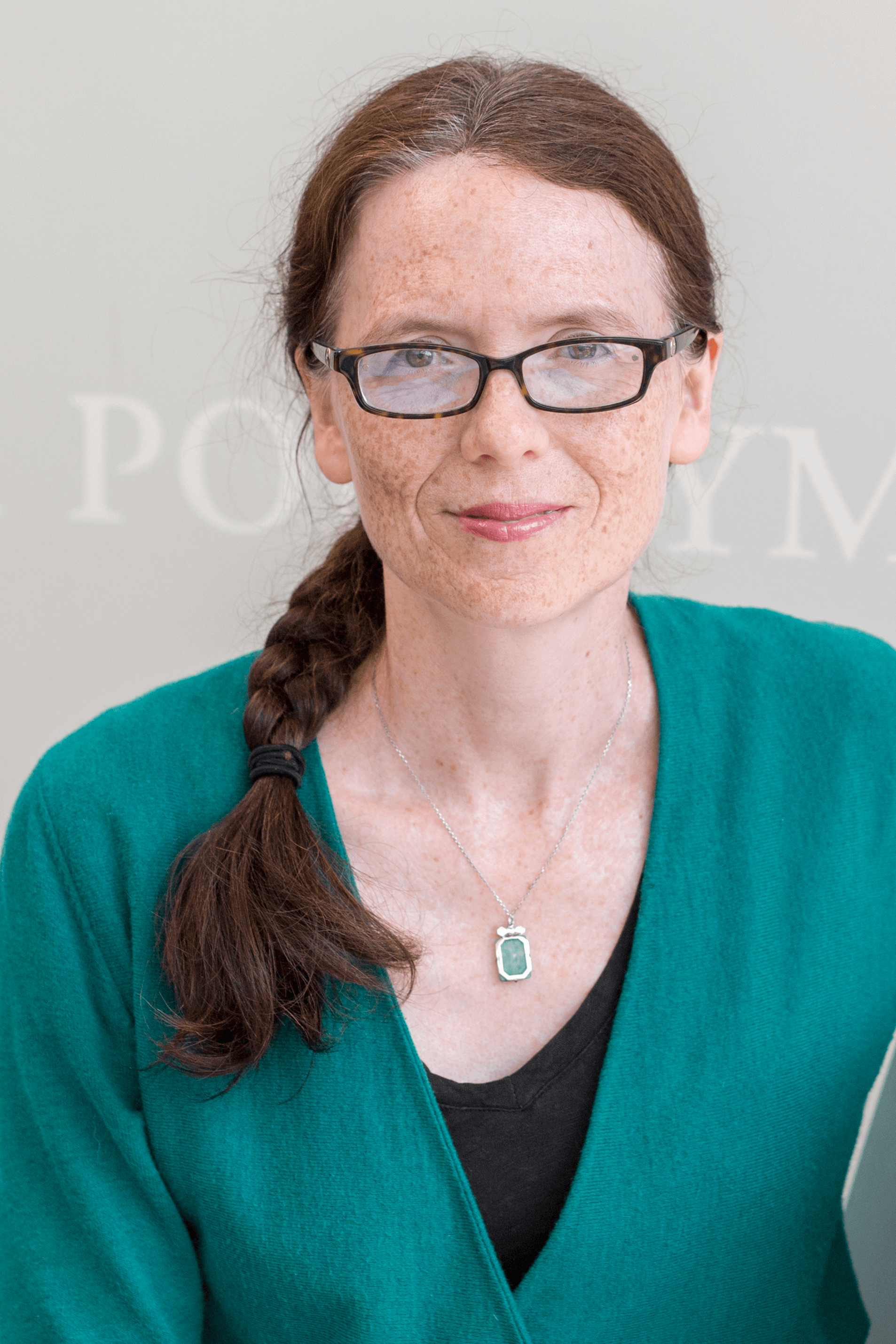
Yvonne Jonk, PhD
Director, Maine Rural Health Research Center
yvonne.jonk@maine.edu
Curriculum Vitae
Please see Yvonne Jonk’s publications on Digital Commons.
Yvonne Jonk joins the Maine Rural Health Research Center as Deputy Director , bringing her expertise in health economics. She also holds the position of Associate Research Professor in the graduate program in public health at the University of Southern Maine’s Muskie School of Public Service. She was previously the Associate Director of the Center for Comparative Effectiveness Analytics at the University of North Dakota School of Medicine and Health Sciences, and held a faculty appointment there. Dr. Jonk’s areas of specialization include rural health, access to care, health insurance coverage, program evaluation, and cost and cost effectiveness analyses. Her current portfolio of work with the Maine Rural Health Research Center includes research on acuity differences in newly admitted rural and urban nursing home residents and the use and cost of health services by the elderly (65+) and the oldest old (age 85+), opioid prescribing practices for rural Medicare beneficiaries, and rural non-emergent ED use. Dr. Jonk contributes on projects with the Rural Telehealth Research Center addressing the use of telebehavioral health services by the Medicaid population and the use of telehealth services within Maine using Maine’s All Payer Claims Dataset (APCD). Dr. Jonk received her PhD in Applied Economics from the University of Minnesota, where she conducted research with the Minneapolis VA Medical Center and the Minnesota Rural Health Research Center and taught in the Division of Health Policy and Management at the University of Minnesota.

Erika Ziller, PhD
Director, Health Services Research Center, UVM
erika.ziller@med.uvm.edu
Curriculum Vitae
Please see Erika Ziller’s publications on Digital Commons.
Erika began her career as a social worker in rural Maine where she quickly realized that many of the challenges facing her clients were exacerbated by health and social policies that were unresponsive to their needs. Since then, she has been committed to policy-informed research aimed at reducing health disparities for vulnerable populations, particularly rural residents. In her 20 years with the Maine Rural Health Research Center, Erika directed numerous studies on rural health care access, coverage, and health reform, including several analyses of the importance of public health insurance (Medicaid and CHIP) in ensuring coverage for rural residents. Erika obtained her PhD in public policy from the University of Southern Maine in 2012. She is currently the Director of Health Services Research Center at the Larner College of Medicine, University of Vermont.

John Gale, MS
Director of Policy Engagement, Senior Research Associate; President of the National Rural Health Association
john.gale@maine.edu
Curriculum Vitae
Please see John Gale’s publications on Digital Commons.
John Gale is a Senior Research Associate and Director of Policy Engagement at the Maine Rural Health Research Center. John is past-President of the National Rural Health Association, completing his term in January 2022. John was awarded the Calico Leadership Award in 2020 by the National Rural Health Resource Center’s Technical Assistance and Services Center (TASC), which annually presents the award to an outstanding rural health leader.
John’s work focuses on leveraging resources to improve the rural healthcare infrastructure and develop rural systems of care. He serves as the principal investigator for several rural health studies as well as for the Center’s work on the National Flex Monitoring Team and the Frontier Community Health Integration Project Demonstration. His portfolio has included projects on rural health care delivery systems including Rural Health Clinics and Critical Access Hospitals; mental health, substance use, primary care, and EMS services; the community benefit, community health needs assessment, population health strategies of rural hospitals; state and federal program outcome measurement and evaluation; and Veteran’s issues. He has presented nationally and has authored and co-authored a wide range of publications.
Gale served as the President of the National Rural Health Association (NRHA) in 2021 and currently chairs their Policy Congress as part of his tenure on its Board of Trustees. He is a member of the Technical Expert Panel for the National Quality Forum’s MAP Rural Health Workgroup, the National Academy of Medicine’s Collaborative Working Group on Community Health Needs Assessments Principles and Practice, and serves as an Expert Advisor on the Maternal and Child Health Bureau’s Grand Challenges Project: Preventing Opioid Misuse in Pregnant Women & New Moms. His past service includes chairing the Policy Committee for the New England Rural Health Association, work with the National Association for Rural Mental Health, the Catholic Health Association, the National Organization of State Offices of Rural Health, the National Rural Health Resource Center, the National Center for Frontier Communities, and the National Center for Rural Health Works. He recently served as a lead consultant to develop a toolkit for policymakers in developing countries on rural substance use treatment, prevention, and recovery for the United Nations Office on Drugs and Crime. Mr. Gale received his Master of Science degree from the Muskie School of Public Service’s graduate program in public health.

Katherine Ahrens, PhD
Assistant Research professor, Muskie School of Public Service, University of Southern Maine
katherine.ahrens@maine.edu
Curriculum Vitae
Please see Katherine Ahrens’ publications on Digital Commons
Kate Ahrens is an epidemiologist and assistant research professor in the Public Health Program at the University of Southern Maine, Muskie School of Public Service. Her research focuses on maternal and child health, and rural-urban disparities. Her projects for the Maine Rural Health Research Center include: a time-to-event cohort analysis of rural-urban mortality among respondents of the National Health Interview Survey using interview data linked to the National Death Index; compiling county-level data on HIV prevalence and availability of HIV services across the U.S.; and estimating trends in prevalence of hepatitis C infection among women delivering live births in the U.S. by rurality of county. She comes to the Muskie School after serving as a health scientist in the Office of Population Affairs, the federal office that administers the Title X Family Planning Program. Before that, she was a senior service fellow at the National Center for Health Statistics, where she conducted analyses using national datasets. Dr. Ahrens teaches courses on applied data analysis in the Public Health graduate program at the USM Muskie School of Public Service.

Zachariah Croll, MPH
Research Associate
zachariah.croll@maine.edu
Curriculum Vitae
Please see Zach Croll’s publications on Digital Commons.
Zach Croll is a Research Associate at the Maine Rural Health Research Center. Mr. Croll’s research interests include the social determinants of health and access to health care services among rural residents. He has contributed to Maine Rural Health Research Center and Flex Monitoring Team projects examining rural health insurance coverage; rural health clinic financial and operational performance; hospital community benefit and population health improvement activities; access to mental health and substance use services; and rural long-term services and supports. He also oversees Maine’s annual member survey for the Children’s Health Insurance Program and assists in the annual cleaning and standardization of Maine’s Behavioral Risk Factor Surveillance System survey data. Prior to joining the Maine Rural Health Research Center, Mr. Croll was a research analyst at RTI International where he helped examine the consistency of payment incentives, resource usage, and outcomes for populations treated in acute and various post-acute care settings. Mr. Croll received his BA in Sociology from the University of Southern Maine and his Master of Public Health from the Muskie School of Public Service at the University of Southern Maine.

Celia Jewell, RN, BSN, MPH
Policy Analyst
celia.jewell@maine.edu
Curriculum Vitae
Celia Jewell is a Policy Analyst in the Maine Rural Health Research Center, contributing to policy analysis, evaluation and applied research projects primarily with the USM Flex Monitoring Team in the areas of Critical Access Hospitals, rural health care delivery systems, population health, and the policy environment. Prior to joining the MRHRC, Ms. Jewell worked in the healthcare industry as a nurse in the areas of critical care, post-anesthesia care, oncology and community health, and as a program manager for a rapidly expanding palliative medicine practice. She has worked collaboratively, both stateside and abroad, on numerous public health initiatives to improve the health of vulnerable populations. Ms. Jewell earned her BSN from the University of Maine, Orono and her MPH from the Public Health Leadership Program at the University of North Carolina, Chapel Hill.

Sara Kahn-Troster, MPH
Policy Associate
sara.kahntroster@maine.edu
Curriculum Vitae
Please see Sara Kahn-Troster’s publications on Digital Commons.
Sara Kahn-Troster is a Policy Associate at the University of Southern Maine, working as part of the Maine Rural Health Research Center and the Flex Monitoring Team (FMT) since 2015. Sara’s portfolio with the FMT focuses on the evaluation of State Flex Program activities across the program areas, CAH-based interventions to address the continuum of care around substance use disorders, and population health improvement. Her current project for the Maine Rural Health Research Center examines the closure of inpatient psychiatric beds in rural communities. During her time at USM, Sara has collaborated extensively with the Maine Health Access Foundation, serving as the evaluator for their Rural Health Transformation grants program and co-authoring the Maine Rural Health Innovation Briefs. She is currently working on an evaluation of the Robert Wood Johnson Foundation’s funding collaboration with the Maine Health Access Foundation to support MaineCare expansion. She is an alumna of Muskie’s graduate program in public health.

Carly Milkowski, MPH
Research Associate I
carly.milkowski@maine.edu
Carly Milkowski is a Research Associate at the Maine Rural Health Research Center. Her research interests include the social determinants of health, access to health care services, and rural health disparities. She has contributed to projects on rural public health history, rural-urban differences in emergency department use, and behavioral health and access to care among Maine residents. Before joining the Muskie School, Carly was a non-profit program manager and worked to address food insecurity in Southern Maine. Ms. Milkowski received her BA in Sociology from Vassar College, and her Master of Public Health at USM’s Muskie School of Public Service.

Louisa Munk, MPH
Research Analyst II
Louisa Munk is a Research Analyst II at the Cutler Institute at the University of Southern Maine. Prior to this role, Louisa worked as a Graduate Research Assistant on a number of projects while earning her MPH at the Muskie School of Public Service. Her recent work has focused on a range of research topics including rural HIV prevalence and service availability, the health status and health care experience of children enrolled in MaineCare, evaluation of the Maine Lung Cancer Coalition, and additional projects within the Maine Rural Health Research Center.

Heidi O’Connor, MS
Senior Data Analyst
heidi.oconnor@maine.edu
Please see Heidi O’Connor’ publications on Digital Commons
Heidi O’Connor, MS, is a Senior Data Analyst in the Maine Rural Health Research Center. Ms. O’Connor has over 20 years of experience working within the field of health services research and analytics in both public and private sectors. Ms. O’Connor’s areas of specialization include analyzing claims data, survey data, and public use data sets. Her research involvement includes topics of rural health, access to care, health insurance coverage, program evaluation, and cost and cost effectiveness analyses. Ms. O’Connor collaborates on the development of data analytic plans, writes complex statistical programs using large healthcare and public health administrative data sets, analyzes and interprets results and provides technical support to research teams. Some of her current projects include creating working datasets and analyses of Medicare and Medicaid administrative claims data to address the use of telehealth among Medicare beneficiaries by Rural Health Clinics and Federally Qualified Health Clinics, the role of tele-mental health use among rural and urban Medicare beneficiaries and Rural Health Clinic service use and reimbursement issues.

Karen Pearson, MLIS, MA
Policy Associate
karen.pearson@maine.edu
Curriculum Vitae
Please see Karen Pearson publications on Digital Commons.
Karen Pearson is a Policy Associate in the Maine Rural Health Research Center and the Flex Monitoring Team. Her research interests include the role of EMS in the rural healthcare delivery system, behavioral health and substance use, patient safety, population health, and long-term care. Ms. Pearson has directed projects on rural health access for veterans and on community paramedicine in rural areas. She was the co-principal investigator on a statewide evaluation of community paramedicine, and was the lead author on the report and award-winning journal article. She has contributed to rural telehealth projects and an evidence review of rural tobacco prevention and control. She also brings her skills in bibliographic systems and qualitative analysis to other rural-focused projects within the Cutler Institute, including federally-funded research on access to substance use disorder treatment. Ms. Pearson received her BA from North Park University (Chicago), her MLIS from the University of Wisconsin-Milwaukee, and her MA from St. Xavier University (Chicago). She also holds a Certificate in Knowledge Management & Knowledge Services from the Special Libraries Association.

Jean Talbot, PhD, MPH
Research Associate
jean.talbot@maine.edu
Curriculum Vitae
Please see Jean Talbot’s publications on Digital Commons.
Jean A. Talbot, PhD, MPH, is a Research Associate at the Maine Rural Health Research Center. Her work with the Center has focused primarily on issues relating to behavioral health in rural populations. Recent projects have addressed: adverse childhood experiences in rural and urban contexts; tobacco use and tobacco control/prevention in rural areas; telehealth and telebehavioral health use among rural Medicaid beneficiaries; and rural Mental Health First Aid. Dr. Talbot holds a PhD in clinical psychology from Clark University, and completed clinical training at the VA Boston Healthcare System and the University of Rochester Medical Center’s Department of Psychiatry. She completed a Master’s in Public Health at the University of Southern Maine’s Muskie School of Public Service.

Deb Thayer, MBA
Research Associate
deb.thayer@maine.edu
Deb Thayer brings her many years of experience with analytic file construction and statistical analysis of claims, surveys, and other health-related data to research projects in the Maine Rural Health Research Center and the Cutler Institute. She has worked with large healthcare claims data including Multi-Payer Claims Database, the Maine All Payer Claims Database, and the Nationwide Emergency Department Sample (NEDS) as part of the Healthcare Cost and Utilization Project (HCUP). She has completed complex statistical analyses using bivariate and multivariate techniques for several projects, including an epidemiological study of Maine Medicaid members with complex medical and behavioral health co-morbidities and a claims-based evaluation of state health reform efforts in Maine, Massachusetts and Vermont comparing state-subsidized insurance plan models.

Elora Way, MA
Research Analyst II
elora.way@maine.edu
Curriculum Vitae
Elora works within two teams at the University of Southern Maine: the Data Innovation Project and the Maine Rural Health Research Center. Elora brings to the Data Innovation Project multifaceted experience working within and supporting nonprofit organizations and their boards, from Maine to New Mexico. She is both empathic toward the challenges they face and motivated to explore realistic ways to use data to improve their capacity and outcomes. For the Maine Rural Health Research Institute, Elora supports analytics for various research on barriers to health access for rural residents. Elora is earning a Master’s of Public Health from the University of Southern Maine and has a MA in Community Development and Planning from Clark University.

Andrew Coburn, PhD
Research Professor Emeritus, Consultant
coburn@maine.edu
Curriculum Vitae
Please see Andy Coburn’s publications on Digital Commons.
As the founding director of the Maine Rural Health Research Center (MRHRC), one of several national centers funded by the federal Office of Rural Health Policy (HRSA), Professor Coburn (Emeritus) has a distinguished rural health research career spanning topics in rural health policy and human services. Since 1992, Dr. Coburn has led rural health studies focused on critical topics related to rural health access to care and insurance coverage, Critical Access Hospitals and state Rural Hospital Flexibility grant programs, rural patient safety and quality, rural long term services and supports and rural telehealth. Since 1993, Dr. Coburn has served on the Rural Policy Research Institute’s (RUPRI) Panel on Rural Health. With his RUPRI panel colleagues, he has authored or co-authored many reports examining the rural impact of federal Medicare, Medicaid, and other policy proposals. In 2003-4, Dr. Coburn served on the Institute of Medicine’s, Committee on the Future of Rural Health Care that published the report, Quality Through Collaboration: The Future of Rural Health. He was awarded the Distinguished Researcher Award from the National Rural Health Association in 2000. Dr. Coburn received his AB from Brown University and Ph.D. from the Florence Heller Graduate School in Social Policy at Brandeis University.